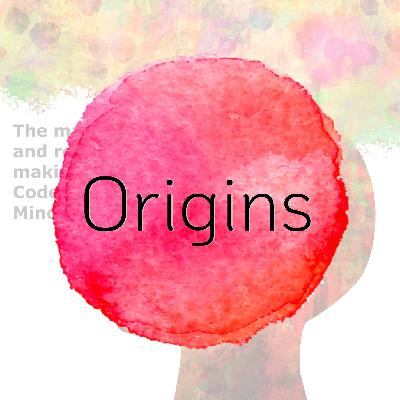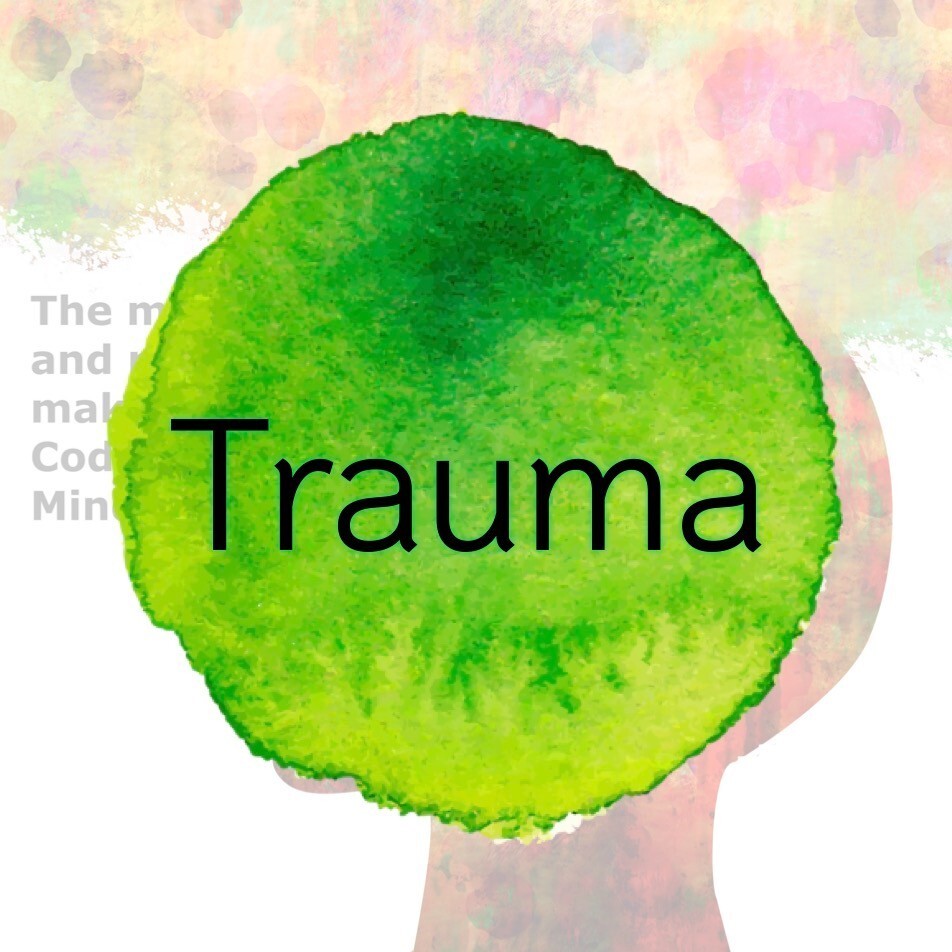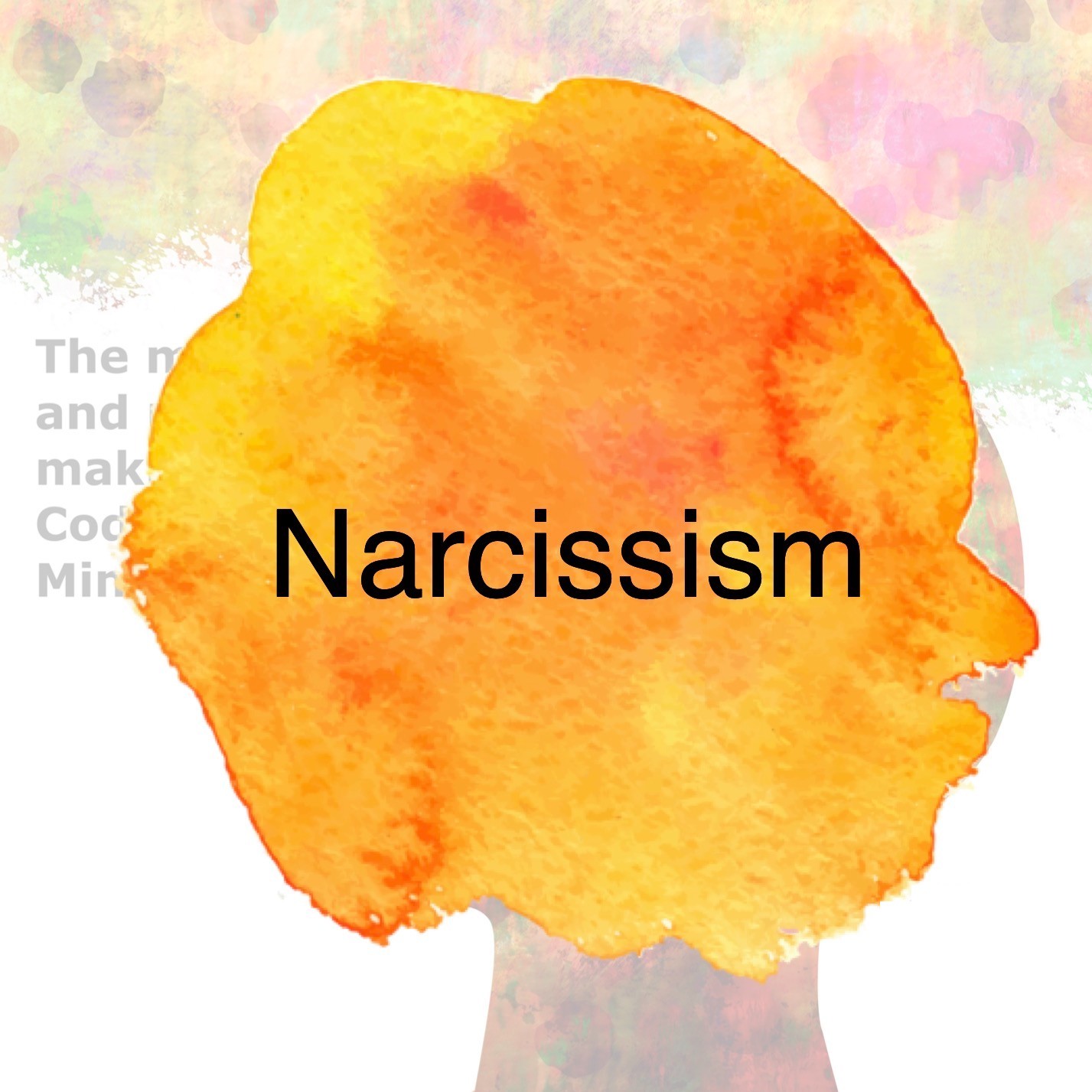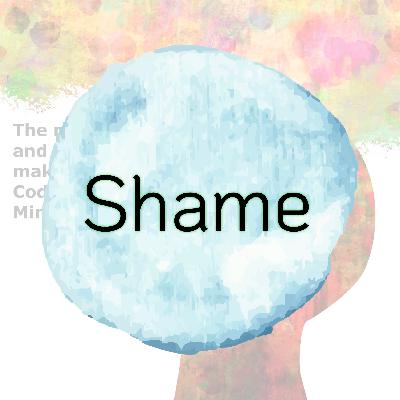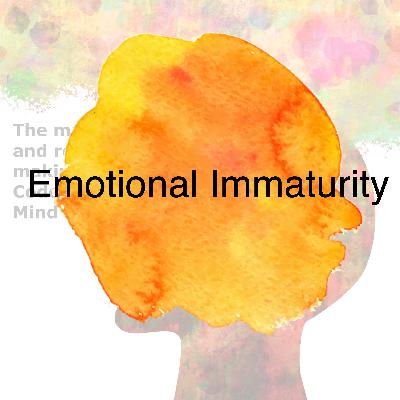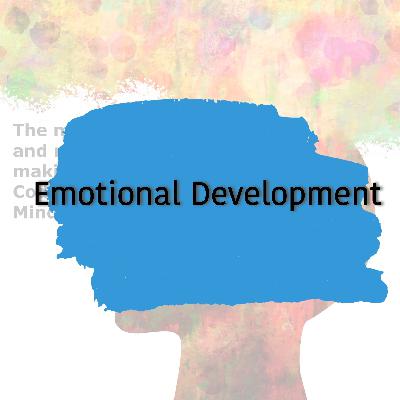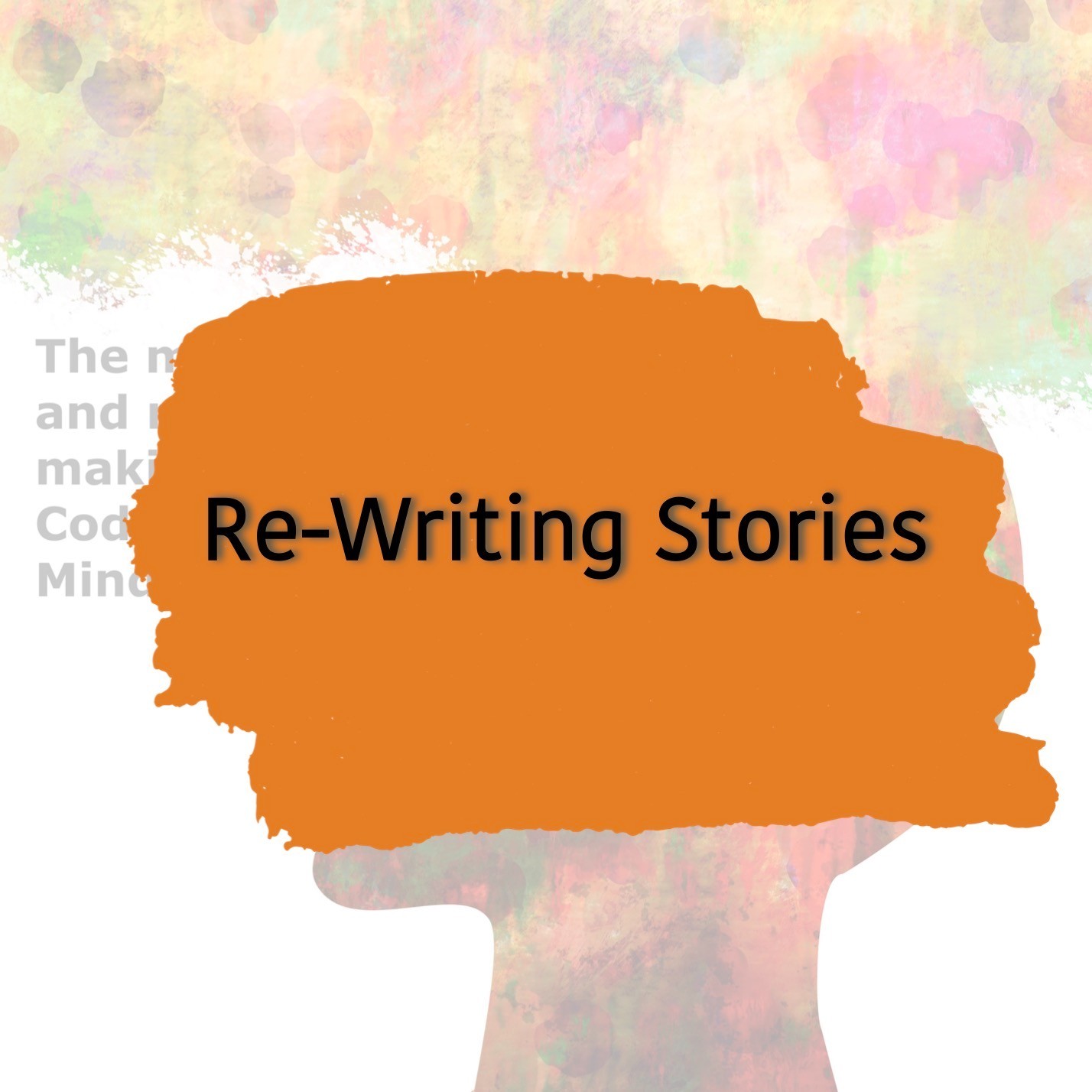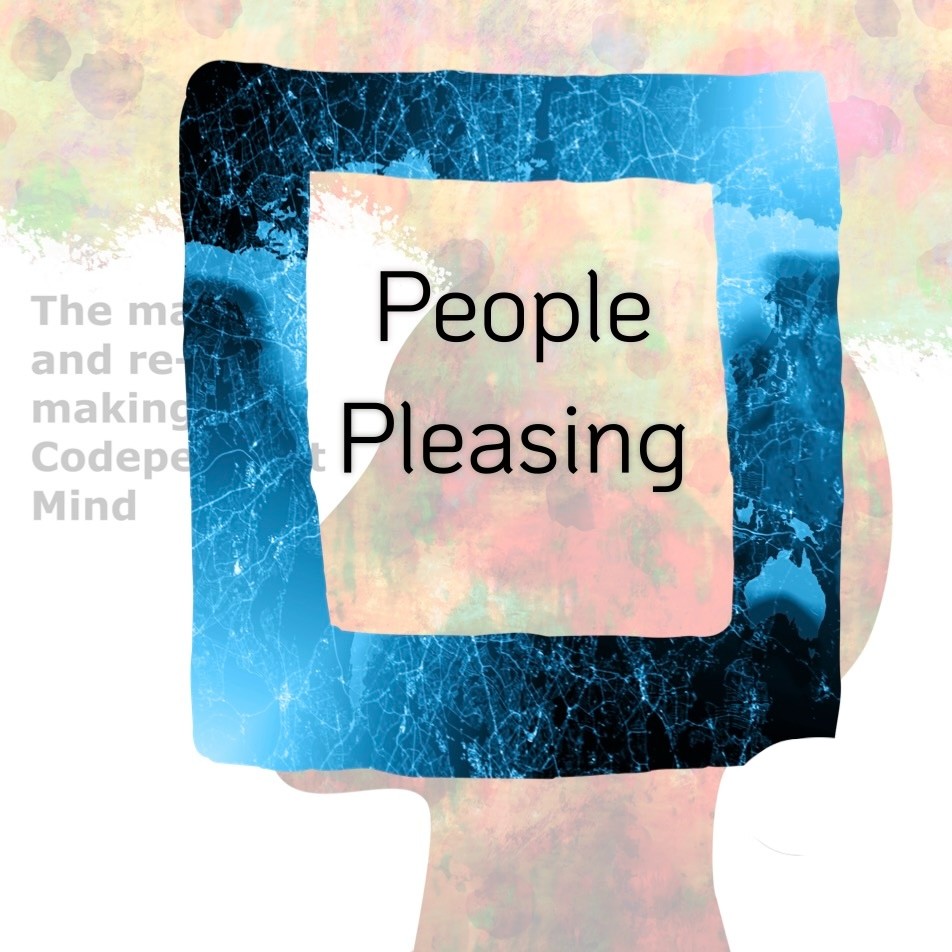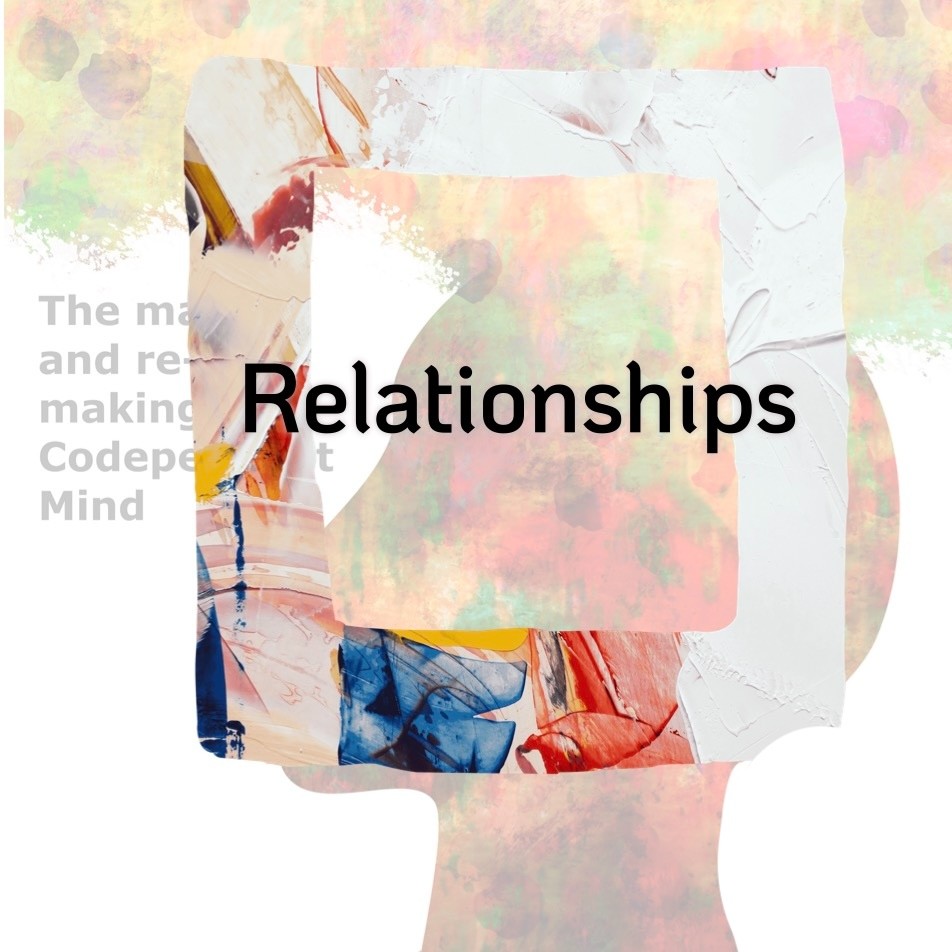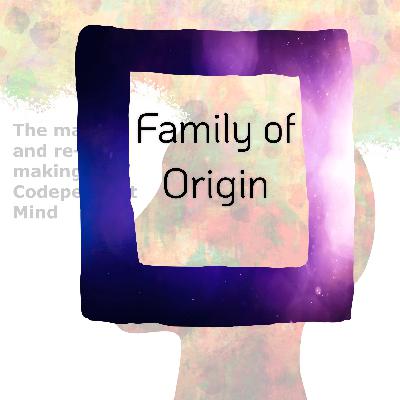Discover A Codependent Mind
A Codependent Mind

A Codependent Mind
Author: Brian and Stephanie
Subscribed: 118Played: 2,619Subscribe
Share
© Copyright 2022 All rights reserved.
Description
Get an intimate, honest look at how codependency can develop and how it can be overcome. Brian and Stephanie take you ’behind the scenes’ of their experiences and their relationship, lifting the veil on how codependent behaviors can cause life long pain and suffering if not addressed. Learn how Brian has been able to understand the web of behaviors that formed his codependency and move on to build healthier relationships.
Season one explores the origins of Brian’s codependent behaviors and the connection between Codependency and trauma. In addition to answering the question ”what is codependency?”, episodes on trauma bonding, narcissism, shame detail out how behaviors emerging from his childhood interpersonal trauma prevented him from developing healthy relationships as he grew into adulthood. In fact, they left him vulnerable to other disordered people like narcissists thereby exposing him to more trauma and entrenching the codependent habits even further.
In season two, we outline how Brian went about healing the trauma the formed the root of his codependency. We discuss how Brian was able to recognize the abuse he had suffered and was suffering and in doing so, finally get clarity about and distance from his relationships with narcissist; how he was able to learn how to sit with his emotions, recognize what they were, where they came from and how to process them; how he had to re-write the stories about himself and his past that weren’t serving him and were actually preventing him from living an authentic, integrated life; and how he worked, and is working, to break the codependent habits that were destructive to his well being and not conducive to forming healthy, integrated relationships.
Even after understanding and healing from codependency, Brian is still left with re-learning how to navigate relationships in a way that produces the kind of intimate, nurturing connections that he has always longed for. Season three addresses topics that come up in that process.
In the fourth season, we investigate core concepts about relationships and the ways in which codependent behaviors can make it difficult to form and sustain loving, intimate relationships.
Season 5 brings other voices into the conversations as we speak with guests who share their own ’making and re-making’ stories. We also take the opportunity to do an updated episode on narcissism.
Season 6 was a reading of the book ”The Making and the Re-Making of A Codependent Mind.” The book is available on Amazon as a paperback, ebook or audiobook. The audiobook is also available on Spotify and other platforms.
For season 7, each episode will focus on the tools needed to make a relationship work post-codependency.
Season one explores the origins of Brian’s codependent behaviors and the connection between Codependency and trauma. In addition to answering the question ”what is codependency?”, episodes on trauma bonding, narcissism, shame detail out how behaviors emerging from his childhood interpersonal trauma prevented him from developing healthy relationships as he grew into adulthood. In fact, they left him vulnerable to other disordered people like narcissists thereby exposing him to more trauma and entrenching the codependent habits even further.
In season two, we outline how Brian went about healing the trauma the formed the root of his codependency. We discuss how Brian was able to recognize the abuse he had suffered and was suffering and in doing so, finally get clarity about and distance from his relationships with narcissist; how he was able to learn how to sit with his emotions, recognize what they were, where they came from and how to process them; how he had to re-write the stories about himself and his past that weren’t serving him and were actually preventing him from living an authentic, integrated life; and how he worked, and is working, to break the codependent habits that were destructive to his well being and not conducive to forming healthy, integrated relationships.
Even after understanding and healing from codependency, Brian is still left with re-learning how to navigate relationships in a way that produces the kind of intimate, nurturing connections that he has always longed for. Season three addresses topics that come up in that process.
In the fourth season, we investigate core concepts about relationships and the ways in which codependent behaviors can make it difficult to form and sustain loving, intimate relationships.
Season 5 brings other voices into the conversations as we speak with guests who share their own ’making and re-making’ stories. We also take the opportunity to do an updated episode on narcissism.
Season 6 was a reading of the book ”The Making and the Re-Making of A Codependent Mind.” The book is available on Amazon as a paperback, ebook or audiobook. The audiobook is also available on Spotify and other platforms.
For season 7, each episode will focus on the tools needed to make a relationship work post-codependency.
75 Episodes
Reverse
Rooting out codependency involves going back to the source, to where the codependent habits and behaviors first formed. This is a clip from Season 3, episode 5 where Brian discusses the effect his dad's anger had on him as a child.
The paperback and eBook version of the first two seasons of this podcast are now available on Amazon - https://www.amazon.com/dp/B0CYB1K31V
What is codependency? And from where do codependent behaviors emerge? Every 'codependent' has an origin story. This is Brian's.
The paperback, eBook and audiobook version of the first two seasons of this podcast are now available on Amazon - https://www.amazon.com/dp/B0CYB1K31V
Our new book is available in paperback, eBook and audiobook format! You, Me & Us: Moving Beyond Relational Trauma and Disorder (Anxious/Avoidant Attachment, Codependency, BPD) to Build a Stable, Lasting Relationship. https://www.amazon.com/dp/B0FC6KCKNT
* We have learned a lot as we have done this podcast. One thing Brian realized is that he underestimated the impact his parent's behaviors, particularly his father's, had on him. We talk about his father a little in the next episode on Trauma, but if you want to hear his updated thinking on the topic, you can listen to Season 3, episode 5, Beyond Codependency - Family of Origin
In this episode:
00:01:41 What is codependency?
00:04:47 History of the word
00:08:01 Codependency as maladaptive behavior habits
00:09:49 Origins of Brian’s codependent behavior habits
00:25:44 The specific behaviors that form ’codependency’
Thank you for liking or reviewing this podcast. It helps other people find the podcast.
Find us on Instagram @codependentmind
Email: codependentmind@gmail.com
Often codependence behaviors emerge as a response to trauma. What is trauma? How is it different then other stressful, even violent, events? What is it like to live with unhealed trauma? This is Brian's story.
Get even more guidance in healing from codependency. The paperback, audiobook and eBook is now available on Amazon - https://www.amazon.com/dp/B0CYB1K31V
In this episode:
00:00:55 What is trauma?
00:02:38 Working definition of trauma
00:05:01 Chronic or complex trauma
00:06:10 Family dynamics
00:09:21 The lasting effects of trauma
00:12:24 Codependent behaviors as trauma responses
00:16:03 Trauma and helplessness
00:18:17 Trauma triggers
00:22:55 Interpersonal trauma
* We have learned a lot as we have done this podcast. One thing Brian realized is that he underestimated the impact his parent's behaviors, particularly his father's, had on him. If you want to hear his updated thinking on the topic, you can listen to Season 3, episode 5, Beyond Codependency - Family of Origin
Website: https://www.codependentmind.com/
We appreciate likes, follows and reviews as it helps other people find the podcast.
In this episode, Stephanie and Brian discuss the concept of trauma bonding within codependent relationships, particularly focusing on two of Brian's past romantic relationships characterized by abuse and narcissistic behavior. They highlight the two key ingredients necessary for trauma bonding: a power imbalance and intermittent abuse.
Get even more guidance in healing from codependency. The paperback, audiobook and eBook is now available on Amazon - https://www.amazon.com/dp/B0CYB1K31V
Brian describes his first partner, referred to as "R," as a successful narcissist who engaged in narcissistic abuse and gaslighting. The abuse focused on undermining Brian's self-esteem and identity, making him feel inadequate and ashamed. Despite the abuse, Brian felt emotionally tied to R, partly due to the intermittent nature of the abuse and the occasional displays of love and care.
Stephanie mentions that Brian had financial, social, and intellectual resources, which adds complexity to the question of why he stayed in these relationships. Brian explains that his low self-esteem and lack of agency, developed from early traumatic experiences, led him to believe that he needed to change and fix himself to make the relationships work.
In one instance, a therapist suggested a separation period during Brian's first relationship to find himself outside of the abusive dynamic. However, Brian couldn't detach herself from the trauma bond and continued trying to change herself to please his partner.
After his first abusive relationship ended, Brian quickly entered into another one that lasted for four years. In this new relationship, He encountered another abusive narcissist, "J", although this person was less socially and emotionally successful, making their flaws more evident to others. There was an initial love bombing phase in both relationships, where Brian received excessive attention, flattery, and compliments. Despite feeling disoriented and recognizing some red flags, Brian struggled to establish boundaries due to his codependency and low self-esteem. J's abuse was somewhat different than R's. It involved explosive coercive language and anger, and featured manipulation and seeking sympathy. Brian describes going into a "turtle shell" during abusive episodes to cope.
We discuss how trauma bonding can distort one's sense of self and agency, making it challenging to leave abusive relationships or even recognize the abuse. Brian's experiences highlight the importance of understanding trauma bonds and their profound impact on codependent individuals.
00:00:41 Definition of trauma bonding
00:01:31 Key ingredients of a trauma bond
00:04:43 Brian’s trauma bond with R
00:05:44 Gaslighting explained
00:07:42 Brian’s trauma bond with J
00:08:50 Love bombing explained
00:13:33 How the trauma bond worked
00:22:30 The internal battle
00:25:51 Shame
00:35:18 Trauma bond vs intimacy
Thank you for liking or reviewing this podcast. It helps other people find the podcast.
Find us on Instagram @codependentmind
Email: codependentmind@gmail.com
Narcissists are an especially dangerous and toxic pairing for people with codependent behaviors, due to the way each person’s maladaptive behaviors work together. In this episode we discuss the general characteristics of narcissism and then detail Brian's two, back-to-back, romantic relationships with abusive narcissists.
Get even more guidance in healing from codependency. The paperback, audiobook and eBook is now available on Amazon - https://www.amazon.com/dp/B0CYB1K31V
In this episode:
00:01:25 Common characteristics of narcissist
00:02:18 The codependency - narcissism connection
00:03:59 Narcissistic abuse
00:05:21 The beginning of relationships/lovebombing
00:10:20 Financial control
00:12:09 The narcissist’s script
00:12:47 A portrait of R
00:15:19 Gaslighting example
00:21:16 A portrait of J
00:31:10 A tale of two narcissists
Thank you for liking or reviewing this podcast. It helps other people find the podcast.
Find us on Instagram @codependentmind
Email: codependentmind@gmail.com
Website: https://www.codependentmind.com/
What is involved in the concept of 'personal agency'? How is agency or its lack connected to codependent behaviors? We explore Brian's experience with those questions in mind.
Get even more guidance in healing from codependency. The paperback, audiobook and eBook is now available on Amazon - https://www.amazon.com/dp/B0CYB1K31V
In this episode:
00:02:44 Personal agency defined
00:04:51 How it develops/gets interrupted
00:07:41 Lack of agency and vulnerability to abuse
00:11:45 Codependent behaviors as an expression of powerlessness
00:14:13 Codependency and chronic victimhood
00:15:45 Moral agency and shame
00:19:48 Resentment
Thank you for liking or reviewing this podcast. It helps other people find the podcast.
Find us on Instagram @codependentmind
Email: codependentmind@gmail.com
Website: https://www.codependentmind.com/
Shame evolved to give us information about the world. But trauma induced shame can be overwhelming and crippling, even life-threatening. Understanding the role shame played in his life and fueled his codependent behaviors, was key to Brian's healing process.
Get even more guidance in healing from codependency. The paperback, audiobook and eBook is now available on Amazon - https://www.amazon.com/dp/B0CYB1K31V
In this episode:
00:01:32 Shame vs Guilt and Embarrassment
00:05:32 Why does shame exist?
00:10:07 How narcissists use shame
00:12:20 Freezing and avoiding
00:14:57 Self-destructive behaviors
00:15:30 Shame venting
00:17:28 Shame rage/resentment
00:19:29 Telling stories to avoid shame
00:21:12 Compartmentalization
00:24:11 Shame and abuse
Find us on Instagram @codependentmind to ask questions or share your story.
The process of learning what emotions are and how manage them was interrupted for Brian at a very early age by abuse and trauma. Because of that, he never really learned how to identify his emotions or what to do with them. This amounted to emotional immaturity and made it difficult for him to form healthy, intimate relationships and left him vulnerable to further abuse and trauma.
Get even more guidance in healing from codependency. The paperback, audiobook and eBook is now available on Amazon - https://www.amazon.com/dp/B0CYB1K31V
In this episode:
00:02:29 The term emotional immaturity
00:03:13 Emotional intelligence
00:05:42 Brian’s emotional avoidance
00:09:45 Good vs bad emotions
00:10:42 Emotional dysregulation
00:16:02 Compartmentalization
00:23:56 Emotions as a source of fear
00:27:36 Recap of season 1
Find us at: codependentmind.com
FREE for a limited time - get the eBook on Amazon. https://www.amazon.com/dp/B0CYB1K31V
This season explores how Brian worked to 're-make' his codependent mind. In this episode we discuss the challenges that Brian faced in getting started on that process and what was needed for him to begin to heal both the trauma and the codependency.
00:01:55 Background on Brian and Stephanie
00:04:11 The need for human connection
00:11:50 Recognizing abuse
00:32:05 Managing shame
00:37:00 Wrong narratives and self-gaslighting
00:41:10 Putting the pieces in place to begin
Find us at: https://www.codependentmind.com/
NOW AVAILABLE - Get your copy of the book today for more guidance on getting started: https://www.amazon.com/dp/B0CYH7TMZ1/
In honor of Brian's birthday, get the e-book FREE on Amazon from Nov. 14 - Nov. 18. https://www.amazon.com/Making-Re-Making-Codependent-Mind-Codependency-ebook/dp/B0CYB1K31V
In this episode we discuss the steps that Brian took to repair the damage done to his emotional system by abuse and trauma. From capacity building through understanding and now working on mastery, Brian has been able to tame the chaos that has dominated his inner emotional life and learn to trust himself and his emotions.
Get even more guidance in healing from codependency. The paperback, audiobook and eBook is now available on Amazon - https://www.amazon.com/dp/B0CYB1K31V
00:02:09 Emotional agency
00:03:08 Shame and fear
00:04:18 Decision making
00:07:10 Healing the emotional substructure
00:13:30 Managing shame
00:28:31 Capacity building to understanding
00:39:50 De-compartmentalization
Find us at: https://www.codependentmind.com/
Stories are powerful tools to help us understand ourselves and our lives. Unfortunately for Brian, many of the stories he adopted or told did just the opposite - served to further cloud and obfuscate what was happening in his internal and external life. In this episode we discuss how he uncovered the true stories of who he was and what had happened to him.
Get even more guidance in healing from codependency. The paperback, audiobook and eBook is now available on Amazon - https://www.amazon.com/dp/B0CYB1K31V
00:02:01 The role of stories
00:03:32 Compartmentalization
00:05:05 Social scripts
00:09:39 Abuse and stories
00:19:26 Lying and shame
00:22:08 Re-writing process
Find us at: https://www.codependentmind.com/
Even after largely healing from the trauma that started Brian down the path of codependency, he was still left with the behaviors that formed in response to that trauma. So although the source of the codependency had been removed, the symptoms, the habituated behaviors, lingered and kept showing up in his relationships in the form of a default sense of powerlessness. In this episode, we discuss what he is doing to finally kick the powerlessness habit.
Get even more guidance in healing from codependency. The paperback, audiobook and eBook is now available on Amazon - https://www.amazon.com/dp/B0CYB1K31V
Transcript
0:00
Hey Hello, this is Stephanie and this is Brian. Welcome to our podcast the making and the remaking of a codependent mind.
Brian 0:13
This is season two, episode four. And we've kind of come full circle at this point to back to the topic of codependency itself.
Stephanie 0:21
So this episode entitled healing codependency, breaking the powerlessness habit, we are going to discuss the specific behaviors, again, that make up the phenomena of codependency, behavior habits that form in response to trauma, abuse or neglect, and how you are trying to break those codependent behavior habits,
Brian 0:47
right for me, those behaviors were formed in response to that five year childhood friendship that we talked about several times throughout this series from when I was about four years old to when I was about 10. And how those behaviors were reinforced, or really kind of amplified by my family dynamic, specifically, my dad's behavior.
Stephanie 1:05
And then as you moved into adulthood, you brought those behaviors into pretty much every interpersonal relationship you had, you would assume responsibility for meeting other people's needs to the exclusion of acknowledging your own needs or feelings. And when the other person had a disordered personality, for instance, a narcissist or narcissistic tendencies, it had especially disastrous results. Yeah.
Brian 1:30
And although, you know, even when I was trying to relate to so called Healthy People, the behaviors didn't really serve me well, then either. So let's go back
Stephanie 1:40
to episode one of season one, that list of behaviors that you read out, in the very first episode that form this phenomena of codependency.
Brian 1:54
Yeah, okay. There is the feeling of responsibility for the emotions and actions of others. There's caretaking, people pleasing, struggling to set boundaries with other people. There's low self esteem and self worth, usually kind of a denial of autonomy or even identity. There's a trouble expressing emotions, kind of a fear of emotions really, or again, it's kind of back to this denial of autonomy. Did I have emotional autonomy and notional autonomy in this in this case, yeah. And then there's denying big picture or even situational problems like so there's where the storytelling and the dishonesty and compartmentalization come in. And then finally, enmeshment. In relationships with personality disordered chemically dependence or other codependence are really impulse disordered individuals. So people who trigger all these above behaviors, or at least somehow don't challenge them, when I come in contact with these people.
Stephanie 2:52
Hearing that list, again, it strikes me that the previous three episodes of the seasons of the first three episodes of this season really dealt with what you did to address the last four items on that list. So that's again, low self esteem, like denial of identity, trouble expressing emotions, fear of emotions, denying big picture, you know, it's developed, as you said, storytelling and normalization, and then investment in relationships. So these first three episodes, we talked about how you recognize and remove yourself from abusive relationships, how you repaired your emotional system and got over your fear of certain emotions and reconnected to your emotions, and then how you rewrote the stories that were keeping you in denial, and keeping you in meshed really, with disordered people, even when they weren't in your life anymore.
Brian 3:51
Yeah, so that kind of lays the groundwork for the healing really, more or less. But then what we're left with here is really the first four items on this list. So let me read these again, that feeling responsible for the emotions and actions of others, caretaking, people pleasing and struggling to set boundaries. These kinds of needs require us a different approach than then what we talked about in these first few episodes,
Stephanie 4:15
in that they were unconscious habitual responses, yeah, that you had to other people. And again, when those people were narcissists or other disordered people, they immediately exploited those tendencies. I want to go back to something we talked about in the first episode of the whole series, the word codependency itself as a kind of problematic word, as we said, coming out of addiction literature, so you had people who were seen as chemically dependent or alcohol dependent, and then people who were in relationship with them, and were enablers of them. Were caretaking them they were seen as codependence right kind
Brian 4:57
of like, as if these people became dependant on the caretaking itself. And really that's all it came down to in that early description of what codependency was.
Stephanie 5:07
Some of the issues are that the word dependency suggests a need. And then addiction we often see the word addiction and use that word is kind of proxy for intense craving, or desire. Right? And neither of those were really applicable in your case. In your case, you were replaying that original abusive relationship.
Brian 5:33
Right. Yeah, it isn't really accurate for me to say that I was addicted to these types of relationships, or even that I was somehow attracted to these type of people like, like, I think this is a common thing that people say, in response to codependent people, what it came down to, for me was that, because of my lack of self awareness, anytime a person came along, that basically triggered my trauma responses and or activated my codependent behaviors, I would just lean into those behaviors because I would become overwhelmed by the subconscious responses. So those behaviors would take over. And I would put all my efforts into essentially taking care of those people at whatever cost because, as you said, I was replanting the G relationship
Stephanie 6:13
in this habitual, unconscious way. Yeah, we had a whole episode on shame. Because it was so central to keeping you stuck, replaying that relationship, and it is one of the most painful emotions. And I guess powerlessness is not technically an emotion. But feeling powerless is super painful, in that it creates a whole cluster of these painful emotions. Yeah, you know, fear possibly being the primary one. It's really terrifying to feel powerless, right. But it can also generate shame and despair, all of these debilitating emotions. And it's potentially at the root of what makes an unpleasant or awful event into a traumatic event. That feeling of powerlessness in the face of what had happened. Yeah, exactly.
Brian 7:05
I definitely felt powerless in that childhood friendship. And then the echoes of that powerlessness kind of just took over from there. And it just infected everything from there forward.
Stephanie 7:16
And these behaviors, the caretaking, the people pleasing, were this effort to get out of this terrifying powerlessness state. Yeah. So habits, even benign ones are hard to break. Yeah, right. But you're faced with breaking these behavior habits, that were so critical in making yourself feel safe as this young child in this perilous situation. So how do you stop doing these behaviors? When, for so long? They were a source of a sense of safety for yourself,
Brian 7:57
seemingly anyway. Well, one of the big things that we've mentioned several times throughout this series is this idea of personal agency.
Stephanie 8:07
Yes. So being tied to personal power. These two concepts go very closely together. If you have a sense of agency, you have a sense of personal power, you have a sense that you can enact changes in the world. Yeah, so you desire,
Brian 8:22
right, it really goes hand in hand with regaining power. So this feeling pervasive feeling of powerlessness that I felt all those years becoming an agent, as we call it, is regaining that power. So the idea of becoming an agent involves several things, it isn't just a matter of, oh, suddenly, I feel powerful, you know, it requires first self awareness. Like, who am I?
Stephanie 8:48
There needs to be an agent there. Yeah, you need to? Yeah, you need to be able
Brian 8:51
to identify what the agent is, what are my values? What are my core values that really, I had been denying myself for so long, just kind of ignoring them? You know, because I felt like I had no power to really enact or work towards my values. And then what types of relationships do I want? What What kind of people do I want to be involved with, you know, not just romantically, but just in general, like, Who do I want to associate with? And then following that, what are my emotions telling me then? So part of what we talked about in one of the first three episodes here is being able to read the signals that my emotions are giving me, but I need to know who I am to know what those signals are otherwise, like, I don't, if I feel angry, great, I'm identifying that I feel angry. But what am I angry at? Why am I angry? I need to know what it is that I'm supposed to be acting on here. So one
Stephanie 9:37
of the things you have done to break this powerlessness habit is to think about who you are and what you want, from your life, what you want from relationships, and to articulate that consciously and repeatedly to yourself and to the people in your life.
Brian 9:53
Yeah, and just
In this episode, we flip the script and Stephanie discusses her experiences loving, and trying to form a relationship with, someone who engages in codependent behaviors.
Get even more guidance in healing from codependency. The paperback, audiobook and eBook is now available on Amazon - https://www.amazon.com/dp/B0CYB1K31V
00:03:03 Stephanie's past
00:04:35 Jekyll and Hyde
00:08:39 Inauthentic caretaking
00:11:49 Dishonesty
00:14:16 Shame
00:17:35 Learning about codependency
Find us on Instagram @codependentmind
There is a lot of talk about personal boundaries these days - having them, respecting them, enforcing them. But what exactly are personal boundaries? Brian and Stephanie do a deep dive into the concept of boundaries.
Get even more guidance in healing from codependency. The paperback, audiobook and eBook is now available on Amazon - https://www.amazon.com/dp/B0CYB1K31V
00:04:53 Back to the boundary basics
00:10:22 Boundary violations
00:14:20 Misuse of boundaries
00:17:29 Boundaries vs wants, needs and expectations
00:25:54 Monogamy
00:29:12 Boundaries and codependency
Find us on Instagram and Facebook @codependentmind
Codependency is not an official diagnosis in the Diagnostic and Statistical Manual (DSM) of Mental Disorders. What does that mean and does it matter? And what is a diagnosis anyway? How can it help or hurt the healing process?
Get even more guidance in healing from codependency. The paperback, audiobook and eBook is now available on Amazon - https://www.amazon.com/dp/B0CYB1K31V
Find us at: https://www.codependentmind.com/
People pleasing sounds good. Why wouldn't we want the people in our life to be pleased? In this episode we explore the connect between people pleasing and codependency and discuss the problems people pleasing can create if it becomes a habitual response to others.
Get even more guidance in healing from codependency. The paperback, audiobook and eBook is now available on Amazon - https://www.amazon.com/dp/B0CYB1K31V
00:02:06 Evolution of people pleasing
00:05:38 People pleasing as a strategy to avoid abuse
00:08:59 The fawn trauma response
00:12:58 Negative consequences
00:16:08 People pleasing and intimacy
00:21:49 Controlling behavior
If you are enjoying this show, please follow, like or review. That will please us ;)
In this episode, we talk about the different kinds of relationships Brian has had in his life - with abusive people, with other 'codependent's, and with 'healthy' people. Stephanie and Brian discuss how they connected even though Brian was still struggling with codependent behaviors, some of the challenges they faced and how they worked through them.
Get even more guidance in healing from codependency. The paperback, audiobook and eBook is now available on Amazon - https://www.amazon.com/dp/B0CYB1K31V
00:01:09 'Healthy' people
00:04:16 Relationships with narcissists/abusive people
00:11:25 Relationships with other codependent or disordered people
00:21:17 Brian and Stephanie's relationship
00:27:56 Intimacy and shame
00:31:12 Trust
00:43:33 Attraction
Esther Perel podcast episode "The Addict" on Apple Podcasts - https://podcasts.apple.com/us/podcast/the-addict/id1237931798?i=1000393763538
Esther Perel podcast episode "The Addict" on Spotify - https://open.spotify.com/episode/5zfYUpAknf9zxsUOF6XKOY
In this episode we take the opportunity to talk more about Brian's 'family of origin' and how it had more of an effect on the development of his codependent behaviors than either of us realized. Brian discusses his father's anger issues, his mother's emotional immaturity, and the impact these had on his childhood and later relationships. He also expresses a newfound understanding and empathy for his parents' limitations and a sense of empowerment in how he can navigate his family relationships moving forward.
Get even more guidance in healing from codependency. The paperback, audiobook and eBook is now available on Amazon - https://www.amazon.com/dp/B0CYB1K31V
00:01:47 Reluctance to discuss family issues
00:05:57 Parental anger
00:12:33 Parental depression/codependency
00:15:55 Positive family dynamics
00:18:12 Lasting effects
00:32:24 New understanding
Instagram: @codependentmind
Email: codependentmind@gmail.com
If shame is not resolved, it can just build up and up until the pressure of trying to suppress it gets to be too much. Then what do you do with it? One way Brian attempted to relieve the pressure from his pent up shame was 'shame-venting' or over-sharing. We discuss how shame-venting works as well as other, unsuccessful ways that Brian attempted to manage his unresolved shame.
Get even more guidance in healing from codependency. The paperback, audiobook and eBook is now available on Amazon - https://www.amazon.com/dp/B0CYB1K31V
Email questions or comments - codependentmind@gmail.com
Find us on Instagram @codependentmind.com
The Serenity Prayer is often said at 12-step meetings like Alcoholic Anonymous and even Codependent Anonymous. But it can challenging to enact, especially if you were caught in codependency's web as Brian was. Now that he has recognized and recovered from a lot of his codependent habits, he has a new understanding of and appreciation for it.
Serenity Prayer - God, grant me the serenity to accept the things I cannot change, the courage to change the things I can, and the wisdom to know the difference.
Get even more guidance in healing from codependency. The paperback, audiobook and eBook is now available on Amazon - https://www.amazon.com/dp/B0CYB1K31V
Email questions or comments - codependentmind@gmail.com
Find us on Instagram @codependentmind.com


